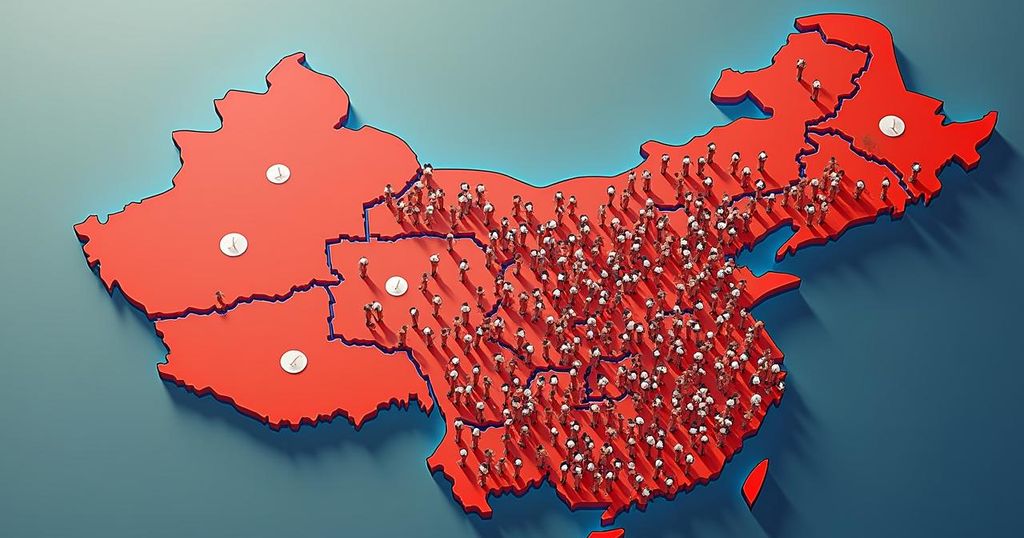Chinese Perspectives on the U.S. Presidential Election: Harris or Trump?
As the U.S. presidential election approaches, many Chinese citizens are anxious about its potential impact on relations between China and the United States. Concerns revolve around the candidates’ foreign policy stances, particularly regarding war and economic sanctions. There is a notable dialogue among citizens about their preferences for either Trump or Harris, revealing their hopes for peace amidst ongoing geopolitical tensions.
The upcoming United States presidential election is generating considerable interest and concern among the Chinese populace, particularly regarding its potential effects on Sino-American relations. Residents in Beijing, like Mr. Xiang, express their aversion to conflict, fearing that the election outcome could exacerbate tensions over issues such as Taiwan, trade, and other international matters. In Ritan Park, a gathering of seniors discuss their views on the candidates, highlighting a preference among some for Donald Trump, as they perceive his administration as one less inclined towards military conflict compared to Joe Biden’s tenure. One senior, Mr. Meng, remarked, “Although he imposes economic sanctions on China, he does not wish to start or fight a war.” The conversation reflects broader sentiments that view Biden as supportive of ongoing military engagements, such as in Ukraine. The political leanings of these Chinese citizens are also influenced by state media narratives which frequently criticize U.S. foreign policies, particularly its alignment with Israel and involvement in the Middle East conflicts. While there appears to be no consensus on who might be more favorable for China, there is a general apprehension regarding potential conflict over Taiwan, especially with Xi Jinping’s firm stance on reclaiming the island. However, some believe that Kamala Harris may present a more stable approach than Trump concerning Taiwan, as they perceive the former president’s transactional attitude to international relations—exemplified by his statement that Taiwan should pay for U.S. defense—as destabilizing. Furthermore, there is anxiety about Trump’s proposed tariffs on Chinese goods, which could significantly harm both economies. Younger generations, while expressing pride in their nation, also look towards American culture and trends, hoping for better relations through people-to-people exchanges despite recent declines in student exchanges between the two countries. Individuals like Lucy, a young woman aspiring to study in the U.S., see Harris’s candidacy as a significant advancement for gender equality, given that China has never had a female leader. In conclusion, while the Chinese public exhibits caution and concern toward the U.S. election and its aftermath, their views reflect a complex relationship with the candidates, shaped by a mix of national pride, economic considerations, and a desire for peace in international affairs.
The article explores the views of ordinary Chinese citizens regarding the U.S. presidential election and its implications for Sino-American relations. Against the backdrop of rising tensions over various geopolitical issues, including Taiwan and trade, the article highlights how everyday Chinese people perceive the two candidates, Donald Trump and Kamala Harris, and their potential impact on peace and stability. It also sheds light on the sentiments of different generations in China towards U.S. culture and politics, reflecting a desire for mutual understanding amid growing competition between the two nations.
The opinions expressed by Chinese citizens illustrate a complex interplay of anxiety regarding international conflicts and economic impacts due to the U.S. elections. While there is a discernable preference for Trump among some seniors due to fears of military intervention, others view Harris as potentially more stable. Nonetheless, there remains a significant yearning for better relationships and cultural exchanges between the populations of both countries.
Original Source: www.bbc.com




Post Comment